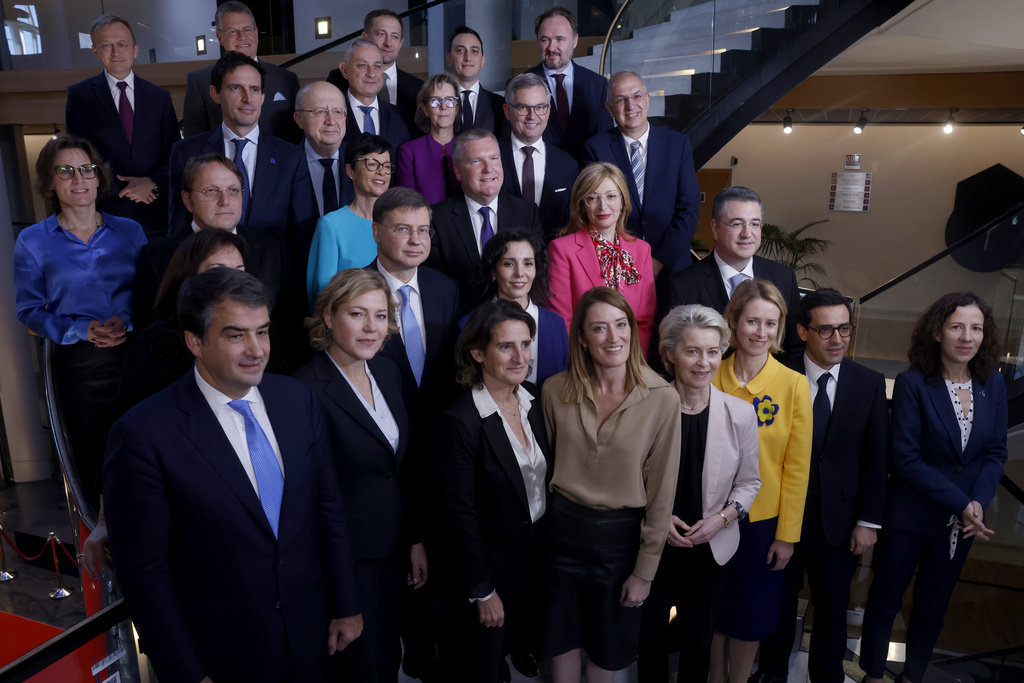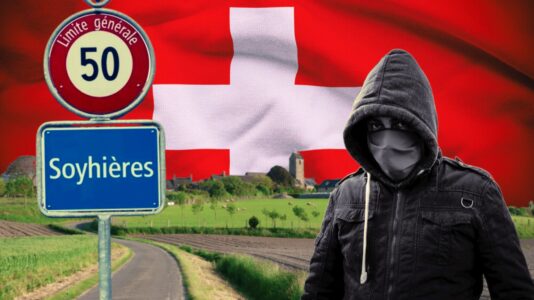The European Parliament approved Ursula von der Leyen’s new European Commission on Wednesday with 370 votes in favor, 282 against, and 36 abstentions, ensuring the continuation of her leadership as the EU’s executive from Dec. 1.
The result was expected thanks to the backing from a loose coalition of the conservative EPP, social democratic S&D, and liberal Renew Europe (RE) groups.
Despite securing the necessary simple majority, this year’s vote marked the least resounding endorsement of the EU executive for decades.
The only other proposed Commission to exceed 200 votes against in recent history was Jean-Claude Juncker’s in 2014, with all previous ballots seeing in excess of 400 votes in favor before Wednesday’s vote.
- 2024 with President Ursula von der Leyen: 370 Yes to 282 No (36 abstentions from 720 members)
- 2019 with von der Leyen: 461–157 (89 abstentions, 751 members)
- 2014 with Jean-Claude Juncker: 423–209 (67 abstentions, 751 members)
- 2010 with José Manuel Barroso: 488–137 (72 abstentions, 736 members)
- 2004 with José Manuel Barroso: 478–84 (98 abstentions, 732 members)
- 1999 with Romano Prodi: 510–51 (28 abstentions, 626 members)
- 1995 with Jacques Santer: 417–104 (59 abstentions, 626 members)
The growing opposition underscores growing divisions in the European Parliament, particularly from right-wing and populist parties critical of von der Leyen’s policies but also from far-left lawmakers who believe the new Commission is leaning too much to the right.
Ahead of the vote, von der Leyen addressed lawmakers, emphasizing the challenges posed by Russia’s war in Ukraine and the need to safeguard European values. “The Europeans must once again fight for freedom and independence. It may look different than for previous generations, but the same thing is at stake,” she declared.
The third-largest party in the Parliament, Patriots for Europe, along with other right-wing factions, opposed the vast majority of appointments. Kinga Gal, vice president of Patriots for Europe, argued, “This von der Leyen Commission is only a continuation of the failed policies of the last five years. In June, the majority of the people voted for change, yet this Commission means no change.”
Similarly, Jordan Bardella, leader of France’s Rassemblement National, warned, “This path will lead Europe straight into decline, so don’t count on us to go along for the ride.”
The newly approved Commission introduces several prominent figures to key roles including Estonia’s former prime minister, Kaja Kallas, who takes over from Josep Borrell as High Representative of the Union for Foreign Affairs and Security Policy.
France’s Stéphane Séjourné will oversee prosperity and industrial strategy, Henna Virkkunen from Finland will handle digital issues and security, while Spanish socialist Teresa Riberta will lead as Commissioner for delivering a Clean, Just and Competitive Transition.
Six vice presidents have been appointed by von der Leyen including Italy’s Raffaele Fitto, a member of Giorgia Meloni’s right-wing Brothers of Italy (FdI) — a move that sparked outrage among left-wing factions in the EU legislature.
Hungary’s representative is Oliver Várhely, who will lead in the area of health and animal welfare.
With a narrower mandate and growing opposition, von der Leyen’s new Commission faces significant challenges in addressing key issues such as the ongoing migrant crisis, the digital transformation, and geopolitical tensions.
In just over a month, the new college will also have to engage with U.S. President-elect Donald Trump who returns to the White House with a vengeance on Jan. 20, 2025.






